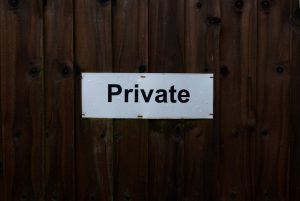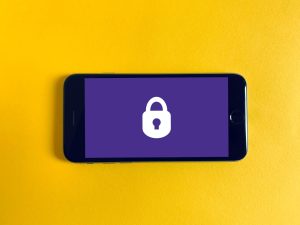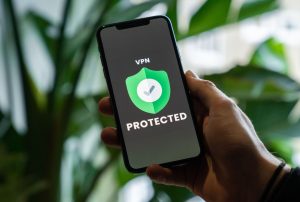How students can stay safe online
The brainy experts at Uswitch have come up with some top tips for students to stay safe. Why not give yourself a safety check-up using this guide?

1. Keep your personal information offline.
No one likes cold calls or spam emails, some of which can be the result of sharing your personal details online in insecure places.
Your address, date of birth, telephone number, and bank details are all personal information, and you should never disclose them online, unless using a trusted source.
Trusted websites sometimes need this information to process an order or request. Trusted websites will have a padlock icon on their webpage and their URL will start with ‘HTTPS’. Can’t see it? Can’t trust it!

2. Stay private on social media.
It’s important that your social media is secure. Snapchat has maps to find people, Instagram and Facebook allow location tagging for posts, and live stories on many platforms can give away information about you and your location.
- Keep your profiles locked on private.
- Make sure people who aren’t your friends can’t see your posts and content.
- Only allow people you know and trust to add or follow you.
- Don’t give away too much information, especially live locations, and personal information.

3. Browse online safely.
Your devices are clever! They know when not to trust a website and when something might pose a risk to your or the device. If a website…
- Doesn’t have ‘HTTPS’ in its URL
- Doesn’t have an up-to-date ‘All rights reserved’ line at the bottom of the site
- Is identified as risky by your device or browser…then it probably isn’t safe and trustworthy. Unsafe websites can carry malware and viruses that will harm your device and potentially steal your information.Remember, your device is good at keeping you safe, but it isn’t watertight – you need to look for these things when using unfamiliar websites.

4. Choose secure passwords
Many websites that require a password often only ask for seven characters including a number, and sometimes a special character. For example, ‘plymouth23&’ would be acceptable. But this might not be enough to protect your account. Instead, you should aim for a minimum of 12 lowercase and uppercase characters, numbers, and symbols. For example, ‘#hIyRcBi577&’ is a more secure password.
Think of home Wi-Fi passwords – they’re long with a good mixture of letters, numbers, and sometimes symbols, but they are secure and mean people can’t access your Wi-Fi.
Remembering these passwords can be tricky, but don’t write them down or share them. You can get a password management app for your phone or computer that will securely store your passwords.

5. Be aware of scam emails, texts, and calls.
Scam communications are becoming super convincing, especially from fake delivery companies and banks.
People asking for your personal information or bank details are likely not to be real – always contact the company directly if you think it may be real but aren’t sure. Do not use any phone numbers or links provided in emails, texts, or phone calls.
Scammers like to send things that will grab your attention and often offer things that are too good to be true and will frequently impersonate companies like Royal Mail and Student Loans Company.

6. Be wary of public Wi-Fi.
Public Wi-Fi is often not secure and poses risks that you might not naturally consider. Limiting your online activity when connected to a public network is a good idea to protect your information and device.
Alternatively, if you are accessing public Wi-Fi frequently, you can purchase a Virtual Private Network (VPN) to protect your connection.

7. Take care when using shared computers.
The computer system at Marjon means as soon as you log out, the device is wiped, meaning any information and files saved to the device will be deleted. That’s why we always tell you to save things to your OneDrive.
But when you are using shared devices at other places like a public library, their systems may not be so advanced. When using shared computers, you should
- Avoid saving passwords to the browser or device.
- Always clear the browsing history.
- Make sure you log out of any accounts.
- Don’t save files to the device!
Catherine Hiley, a broadband expert at Uswitch, said:
“Staying safe online is important for all internet users. However, caution should be taken by students, who are at a higher risk of online threats such as phishing, scams and fraud. Nevertheless, these risks are more prominent if appropriate safety measures are not put in place. By following our recommendations, you should be able to sufficiently protect yourself against online threats. If you do find yourself a victim of cybercrime, it’s important to report it to Action Fraud. You can also speak to your university, which may be able to offer additional help and guidance.”
A Durham University student, who would like to remain anonymous, experienced an online scam whilst at university. They comment:
“I was scammed by someone pretending to be from a reputable institution on LinkedIn. They pretended that I was being accepted for an internship at the institution and took money from me under the pretense that they were finding me an apartment in the country and setting me up to move there. They took between £500 and £1,000, which was a lot for me as a 19-year-old student at the time.“My advice for other students who find themselves in a similar situation would be to deeply research any opportunity offered to them. In addition to this, I would recommend finding other students who have worked in this role previously to ensure the opportunity is legitimate.”
Check out some safe and cheap broadband options from an independent provider here.
If you would like to learn more about being digitally secure, contact the Digital Innovation team at Marjon at digitalinnovation@marjon.ac.uk.
Post authored by:
Patrick Owen
Press & Public Relations Officer
Plymouth Marjon University
